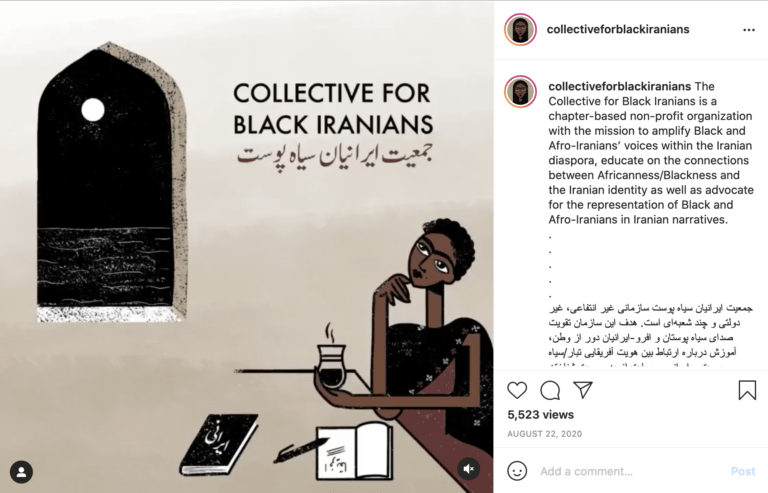
Six Black and Afro-Iranians based in Canada, Germany, France and the United States launched the Collective for Black Iranians in August 2020 out of the necessity to be seen, to be heard and to be understood..
As of May 2021, the Collective for Black Iranians has developed a lively audience of over 20,000 followers from all over the world. The Collective centers the Black and Afro-Iranian experience through various media in Persian and English in collaboration with their network of resident artists, storytellers and filmmakers.
Despite a centuries-long presence in Iran, Black Iranians are regularly written out of national historical narratives. Sailors, merchants, laborers, religious leaders, political figures and enslaved people all connected the East African and Iranian coasts. By the nineteenth century, however, Iranians saw East Africans largely through the lens of enslavement. Although Iranians had, for centuries, enslaved Caucasians, Central Asians, South Asians and East Africans, geopolitical changes ultimately left East Africans most vulnerable. While some East Africans were enslaved as date farmers or pearl divers, the prevalence of domestic workers in urban centers informed Iranian conventions about race, particularly Blackness. In the cities, enslaved East African men, women and children worked as nannies, cooks, pages, escorts and housekeepers to manage elite and wealthy Iranians’ day-to-day lives. Persian speakers commonly used the term “siyah” or “black” as an adjective to describe a variety of people, ranging from people from Baluchistan to elsewhere in the subcontinent. But the growing association of East Africans with enslavement turned the term “Black” into a noun that referred specifically to enslaved East Africans.
Forthcoming in MER issue 299 “Race—Legacies and Challenges”
Beeta Baghoolizadeh, Priscillia Kounkou Hoveyda
https://merip.org/2021/06/writing-ourselves-into-existence-with-the-collective-for-black-iranians/
